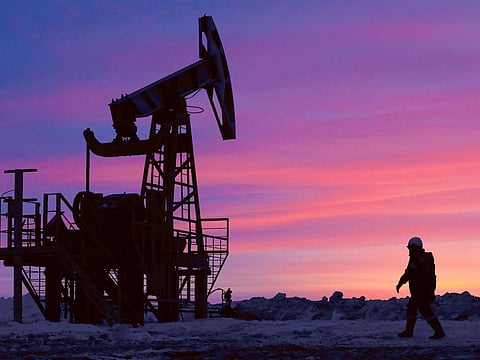OPEC+ will settle for status quo if oil prices remain at $90 plus
Oil prices have gained their way back to levels that remove need for major cuts

Expectations about intervention by OPEC+ in case of a fall in oil prices have come true. Apart from the pressures to which they are exposed, the OPEC+ countries agreed to cut oil output by 100,000 barrels per day (bpd) during this month’s meeting.
They also announced reconsidering the level of production at the next meeting in October, which means they are ready to make further cuts if oil prices witness new declines. Prices had fallen sharply after the group's announcement at the beginning of last week, when it dropped to nearly $88 a barrel, a 10 per cent decline as a result of expectations for the global economy and the possibility of a further slowdown.
However, such expectations appear to be exaggerated and exploited to create unrealistic perceptions, which led prices to returning to their upward course, crossing $95 this week. The US has announced further withdrawals from its strategic oil reserves next month, October. This is with the knowledge that the previous large withdrawals did not contribute to a drop in prices as was expected due to technical reasons related to market fundamentals, a fact that was referred to at that time.
The fact is that oil markets are affected not only by levels of supply and demand, as they are balanced in this aspect and there is no shortage of supplies. But they suffer from a structural imbalance related to oil refining output and the type of demand for these, especially in the EU countries and the US. This is because refineries are unable to meet the actual needs of the market despite the availability of crude oil, which means that addressing the conditions in the oil markets must begin with tackling structural imbalances. And not by blaming a particular party or others.
EU needs a clearer energy policy
In this regard, modest measures are being taken by consuming countries that do not contribute effectively to addressing the energy crisis in the West. Some OPEC+ countries recently increased their exports of refined oil products to EU countries that had rushed to close some of their refineries in recent years.
The response by OPEC+ countries in increasing supply of oil products to Europe clearly shows intent to contribute to solving the energy crisis. However, this requires EU to cooperate and deal with market requirements in a professional manner. For example, their oil and gas infrastructure is not yet fully prepared for imports from outside the European continent, especially those related to natural gas imports. They need years to find the required balance between imports from the European continent and beyond.
As for the near future, which basically means the OPEC+ countries, it seems that the balance of oil markets will remain important for keeping prices at fair rates. If between $90-$100 per barrel, it is not expected that the group will take a further decision to cut production at their meeting next month. But if prices fall below this rate, they will be completely ready to make a further cut, especially as they are aware of leaks to the media of sensitive news aimed at dragging prices down.
A change that runs deep
All this refers to the structural change made in the relationship between the producing and consuming countries since the establishment of OPEC+, which gave the group greater power. OPEC was treated inferiorly in the past. But the balance of power has changed greatly after the big price rise during the first oil shock in the mid-1970s, and also after OPEC ministers were taken hostage in Vienna by Ilich Ramirez Sanchez, the terrorist better known as Carlos the Jackal, who threatened to kill some of them.
This clearly means that dealing with old methods will no longer work, requiring a similar change in the nature of cooperation between the two groups to get a fair price for a barrel of oil on the one hand. And avoid energy crises in consuming countries on the other, which will serve the interests of both parties and the global economy as a whole.



